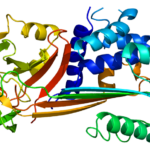One of the longest-running studies of type 1 diabetes isn’t stopping anytime soon.
The Pittsburgh Epidemiology of Diabetes Complications Study was recently renewed by the National Institutes of Health for another five years.
The study, led by the University of Pittsburgh’s Graduate School of Public Health, has produced 157 research papers on discoveries made in people with type 1 diabetes, also known as juvenile diabetes.
“This study has changed the way we look at type 1 diabetes,” said Trevor Orchard, M.D., professor of epidemiology at Pitt Public Health and principal investigator on the study. “From heart disease to depression – even oral health – type 1 diabetes affects so many aspects of a person’s general well-being. Through this study, we’ve been able to alert physicians and patients to health conditions they might not have otherwise been aware of, allowing for preventative treatments and better quality of life for those with type 1 diabetes.”
 Major findings include showing that all excess mortality is related to developing increased protein loss in the urine, that certain genetic variants lead to greatly increased risk of heart and kidney disease and that most individuals with type 1 diabetes can now experience a normal life expectancy.
Major findings include showing that all excess mortality is related to developing increased protein loss in the urine, that certain genetic variants lead to greatly increased risk of heart and kidney disease and that most individuals with type 1 diabetes can now experience a normal life expectancy.
The Pittsburgh Epidemiology of Diabetes Complications Study is an investigation to document long-term complications of type 1 diabetes among former patients diagnosed at Children’s Hospital of Pittsburgh of UPMC between 1950 and 1980. It has followed 788 volunteer participants who regularly answer questions and have clinical examinations so that researchers can learn more about the condition and how it changes as a person ages.
Type 1 diabetes is usually diagnosed in children and young adults and happens when the body does not produce insulin, a hormone that is needed to convert sugar into energy. It can lead to nerve, kidney, eye and heart complications but can be controlled with insulin therapy and other treatments.
“Hopefully we’ll be able to continue this study well into the future,” said Dr. Orchard. “We can now say for sure that diabetes is not just a sugar disease; it is far more complicated. With genetic and psychosocial components, as well as the usual physiologic risk factors, there is a lot to put together. We’ve got a lot more research to do before we solve all the puzzles.”
Among the topics that the Pittsburgh Epidemiology of Diabetes Complications Study has tackled are life expectancy, heart disease, kidney disease, weight, blood pressure and cholesterol, and brain connectivity.









